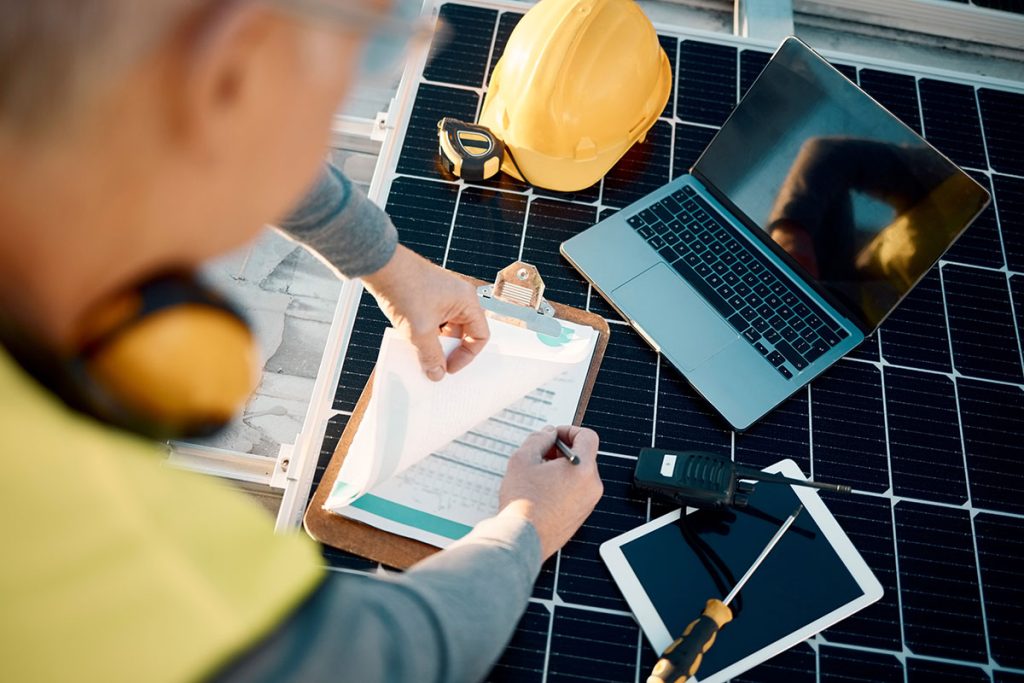Solar Repairs
Detecting signs of a malfunctioning solar system is essential for maintaining efficiency and preventing long-term damage. Several indicators may suggest that your solar system is not operating correctly.
- Decreased Energy Production: A noticeable decline in energy output could indicate issues with your solar panels, inverters, or the overall system. Regularly monitoring energy production against expected values helps identify potential problems.
- Inverter Issues: The inverter is a critical component that converts solar-generated DC power into usable AC power. If you observe inconsistent or no LED light indicators on the inverter, it might signal a malfunction. Unusual noises, like buzzing or clicking, are also red flags.
- Faulty Panels: Physical damage, like cracks or shattered glass, directly impacts a solar panel’s performance. Reduced energy production from a specific panel or an entire string may suggest a malfunction. Visual inspections are crucial to identifying such issues.
- Shading Problems: Even partial shading on solar panels can significantly reduce efficiency. If nearby trees or structures have grown and cast shadows on your panels, it’s essential to address this promptly.
- Dirty or Damaged Panels: Accumulation of dirt, debris, or bird droppings on solar panels hampers sunlight absorption. Regular cleaning is necessary. Additionally, any form of physical damage, such as scratches or punctures, can compromise a panel’s effectiveness.
- Electrical Issues: Warning signs like burnt smells, sparking, or electrical fluctuations in your solar system should not be ignored. These symptoms may indicate faulty wiring, loose connections, or other electrical problems.
- Monitoring System Alarms: Many solar installations have monitoring systems that alert homeowners to irregularities. Ignoring or dismissing these alarms can lead to more significant issues over time. Regularly check and respond to system notifications promptly.
- Inconsistent Readings: Review your system’s performance data regularly. Drastic variations in data, such as spikes or dips, may suggest underlying issues with the solar components.
- Age of the System: Like any technology, solar systems have a lifespan. If your system is approaching or surpassing its expected lifespan, it might be prone to malfunctions. Upgrading or replacing aging components becomes crucial for maintaining efficiency.
Regular professional inspections, along with vigilant homeowner monitoring, are essential for addressing these signs promptly and ensuring the longevity and effectiveness of your solar system.









